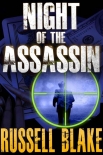The Cutthroat, Clive Cussler [best ereader for manga txt] 📗

- Author: Clive Cussler
Book online «The Cutthroat, Clive Cussler [best ereader for manga txt] 📗». Author Clive Cussler
A thief-catcher lock—which Bell had heard of but never seen—was accompanied by an eighteenth-century lesson book for accountants. The book warned auditors tallying the estates of the deceased to beware of safes armed with spring-loaded manacles to trap a thief who tried to pick the lock. This one protected a strongbox, left open to show springs that had the power to shatter wrist bones.
A lock dubbed un-pickable caught his eye. The museum challenged the visitor to try, and even supplied a set of picks. Isaac Bell was using his own when Nigel Roberts walked in.
“You’re wasting your time, Mr. Bell. No one has ever succeeded in picking that lock.”
“It’s got a lot of pins,” said Bell, who maintained a light pressure on his turning tool, which he had inserted vertically to leave room for his pick. “Or it could be because they tried it using your tools.”
He lifted the final pin and increased pressure on his turning tool. The un-pickable lock rotated open, and he looked Roberts full in the face.
“Davy Collins thinks that Jack the Ripper was as agile as a young man. Which you could have told me yourself, if you cared to. You also could have told me that Davy himself admitted he was ‘speculating.’ Whoever he saw running wasn’t necessarily the Ripper.”
“Who are you, Mr. Bell?”
“‘Power pollutes,’ you told me. ‘Obedience enslaves.’ Who do you obey?”
“No one.”
“What game are you playing?” asked Bell. “Why did you send me on a wild-goose chase?”
The tall detective and the white-haired old man locked angry eyes.
“Those girls he slaughtered aren’t my ‘hobby,’” said Roberts. He started blinking behind his spectacles. “They are not pieces in a game.”
Isaac Bell recalled that the retired constable at the Red Lion had told him, “Nigel Roberts could never put old Jack out of his mind.”
Despite the games, Bell had to concede that something about Roberts rang true. Did he find the murderer as repulsive as Bell did? Did he truly care about the women the Ripper had killed so long ago?
“Calling him a monster,” said Bell, “or naming him the Whitechapel Fiend, somehow denies that he was a human criminal.”
“It also somehow denies that the girls were human beings,” said Roberts. “And that makes me almost as angry as their tarting up their failure to catch him with a word like ‘mystery.’ It makes the Ripper seem like an unstoppable force of nature instead of the product of incompetent investigators.”
“Jack the Ripper is not my hobby, either,” Bell said bluntly. “I am not an insurance investigator on a busman’s holiday.”
“Then what’s your interest— Don’t worry. I won’t tell. Besides, they wouldn’t listen.”
“O.K.,” said Bell. “But tell me something first. A professional operative has been shadowing me since I got to London. Is there anything in the Jack the Ripper case that my asking questions would get me shadowed?”
“We’ve already established that Scotland Yard did not solve at least five murders by the same killer, plus ten or more after he supposedly drowned. Were they incompetent or did they prefer not to? If they were incompetent, they don’t want to be reminded. If corrupt, then they don’t want you to expose them.”
“But I don’t think the shadow is a cop,” said Bell.
“Why?”
“I know cops. This guy is different. Besides, the inspector helped me talk to retired coppers. He must have known if I came to the Red Lion, I would meet you.”
“Undoubtedly,” said Roberts.
Convinced that Roberts knew nothing about the shadow, Bell palmed his Van Dorn badge and showed it to the old man.
“I am Chief Investigator of the Van Dorn Detective Agency. I am hunting a murderer who operates similarly to your Jack the Ripper.”
“Do private detectives investigate murder in America?”
“Ordinarily, murder is a matter for the police,” Bell admitted.
He told Roberts about his role in Anna Waterbury’s death.
“I let her down,” he said. “I let her father down. I will make amends the only way I can—by strapping her killer in the electric chair.”
“I wish you the best of luck,” said Roberts. “But I fail to see similarities to Jack the Ripper, who killed many, many women.”
Bell described the subsequent murders of Lillian Lent and Mary Beth Winthrop.
Roberts grew excited. He demanded details.
Bell reported the patterns: fair, petite young women; their necks broken; their bodies wound in capes. He gave him the murders turned up by his All Field Offices Alert: the slaying in Albuquerque that Texas Walt unearthed; Tim Holian’s account of girls killed in rising numbers that paralleled the movie business shift to Los Angeles; Bronson’s raw assessment of relentless slaughter in San Francisco.
Roberts asked, “Are you saying that your murderer operates similarly to Jack the Ripper? Or are you saying that he is actually one and the same, Jack the Ripper?”
“I was told at the Yard that Jack the Ripper drowned himself in the Thames.”
“I do not believe you left America in the midst of a murder investigation to study the habits of famous killers. I ask you again, are you speculating that your man is actually Jack the Ripper?”
“Whether he is hinges largely on how old he was when he killed in London. Was he as young as Davy Collins suggests? Keeping in mind that no one knows for sure whether Davy Collins saw the actual Ripper or someone else.”
Roberts shook his head and marveled, “It doesn’t seem possible . . . But now I see why his age is so important to you.” Abruptly he smiled and looked satisfied. “You’re ready for Barlowe.”
“Who is Barlowe?” Bell was wary. It sounded like Roberts was back to his games.
“Wayne Barlowe was a newspaper artist who drew for the Illustrated News. You’ll have seen his drawings in your research. Try to get him to tell you a story. Tell him I told you to ask him to tell you a story.





Comments (0)